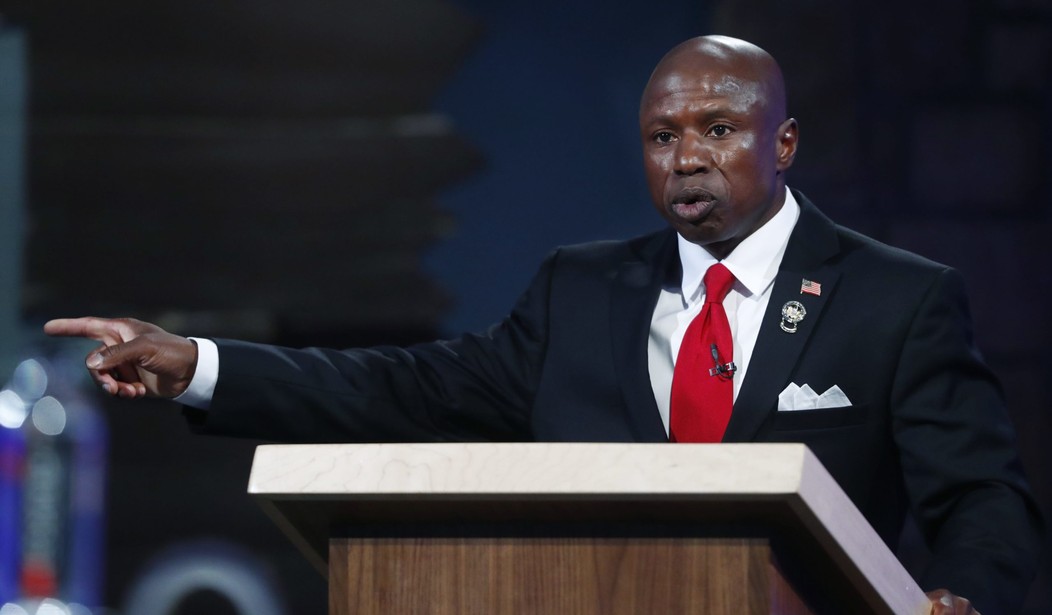WASHINGTON — Cash-strapped counties in legal marijuana states are in need of federal resources for combating illicit marijuana activity, a GOP House primary candidate said last week.
Darryl Glenn, who is challenging six-term incumbent Rep. Doug Lamborn (R-Colo.) for the state’s 5th Congressional District in a House primary, said in a recent interview that illegal marijuana grow operations are putting heavy financial pressure on municipalities.
Glenn’s comments come in the same month that Attorney General Jeff Sessions rescinded the Obama administration directive blocking federal authorities from pursuing marijuana charges against businesses and individuals in legal states.
Obama’s Deputy Attorney General James Cole issued a memo in 2013 stating that the federal government would not block marijuana legalization at the state level, instead focusing on crackdowns of illegal drug trafficking and distribution to minors.
Sessions has also opposed Congress’ Rohrabacher–Farr amendment, which is language that prohibits the Department of Justice from spending any federal money on prosecution against individuals and businesses in legal medical marijuana states.
“Given the department’s well-established general principles, previous nationwide guidance specific to marijuana enforcement is unnecessary and is rescinded, effective immediately,” Sessions wrote in his reversal.
Immediately following the decision several Colorado officials sounded off, saying that the new direction will not have any impact on marijuana sales in their state.
U.S. Attorney for the District of Colorado Bob Troyer released a statement hinting that Sessions’ reversal will not have an impact on marijuana prosecution in Colorado.
“The United States Attorney’s Office in Colorado has already been guided by (principles prior to the Cole memo) in marijuana prosecutions — focusing in particular on identifying and prosecuting those who create the greatest safety threats to our communities around the state,” Troyer said. “We will, consistent with the Attorney General’s latest guidance, continue to take this approach in all of our work with our law enforcement partners throughout Colorado.”
Colorado Attorney General Cynthia Coffman, who is running for governor, recently told reporters that “I would encourage people not to freak out.”
El Paso County, where Glenn sits as a commissioner, is the largest county in the state. El Paso allows medical marijuana sales, but recreational activity is prohibited. Glenn, who is opposed to legalization, said that he is committed to upholding the will of the voters.
In addition to creating policy confusion between state and federal law, Glenn said the lack of uniform direction on marijuana is costing his county. Illegal grow operations in El Paso County, he said, have been a major problem. In December, county officials seized more than 200 pounds of illicit marijuana at residence near Colorado Springs. Authorities claim the drugs were linked to a Mexican drug cartel.
“It’s creating a financial strain on our county resources because you’re having to go out and trying to deal with these within the existing budget without getting any financial assistance from the federal government to help deal with those particular issues,” Glenn, who was defeated by Sen. Michael Bennet (D-Colo.) in the 2016 Senate race, said in a recent interview. “When we’re having to deploy resources to that type of activity, it does place a strain on our ability to provide other services.”
El Paso County Sheriff Bill Elder has said that illegal grow operations will be his No. 1 priority in 2018, which coincides with a new state law that limits the amount of plants Coloradans can grow in their homes.
Glenn blamed Congress for its inability to provide clarity on marijuana policy.
“I think that Congress needs to step up and deal with this issue instead of harping, and really either ‘yes’ or ‘no’ and clear up this conflict once and for all between the federal and state,” he said.
The problem, he continued, is that each new administration can prepare its own memo, and the policy becomes a moving target.
“If you’re a proponent of states’ rights, and you want marijuana use, you should not have to be concerned that if the next administration comes, that it’s going to come in and shut down your business,” Glenn said, arguing that Congress needs to address the issue with sweeping legislative policy, which will be in the “best interest of the country.”









Join the conversation as a VIP Member